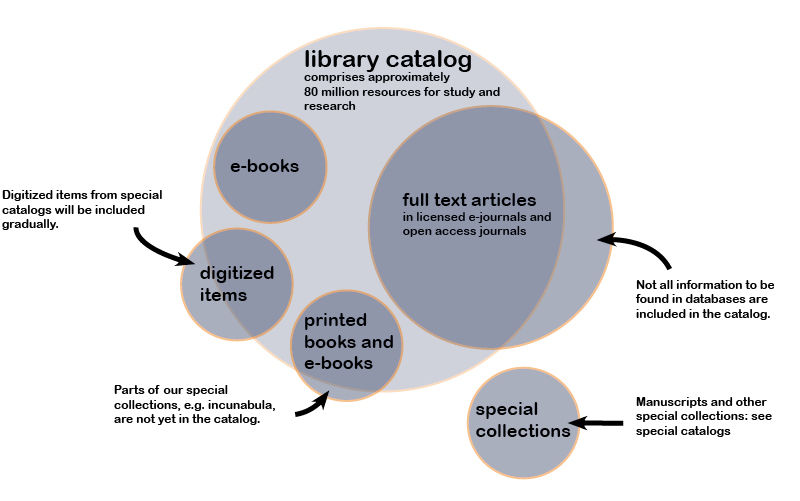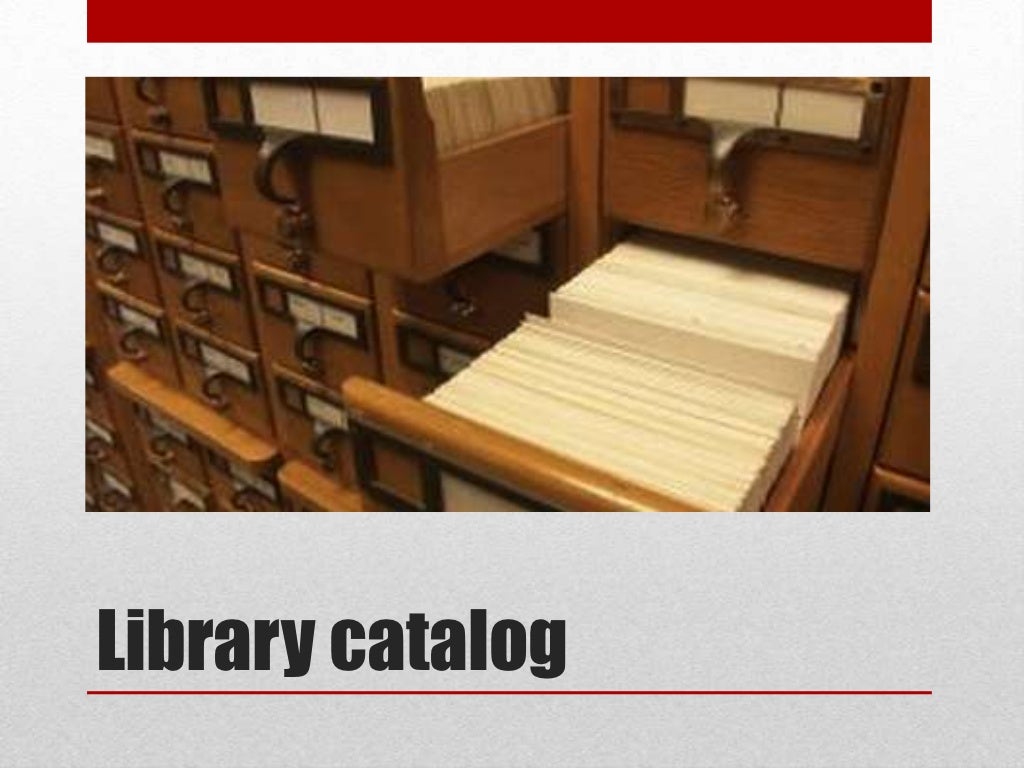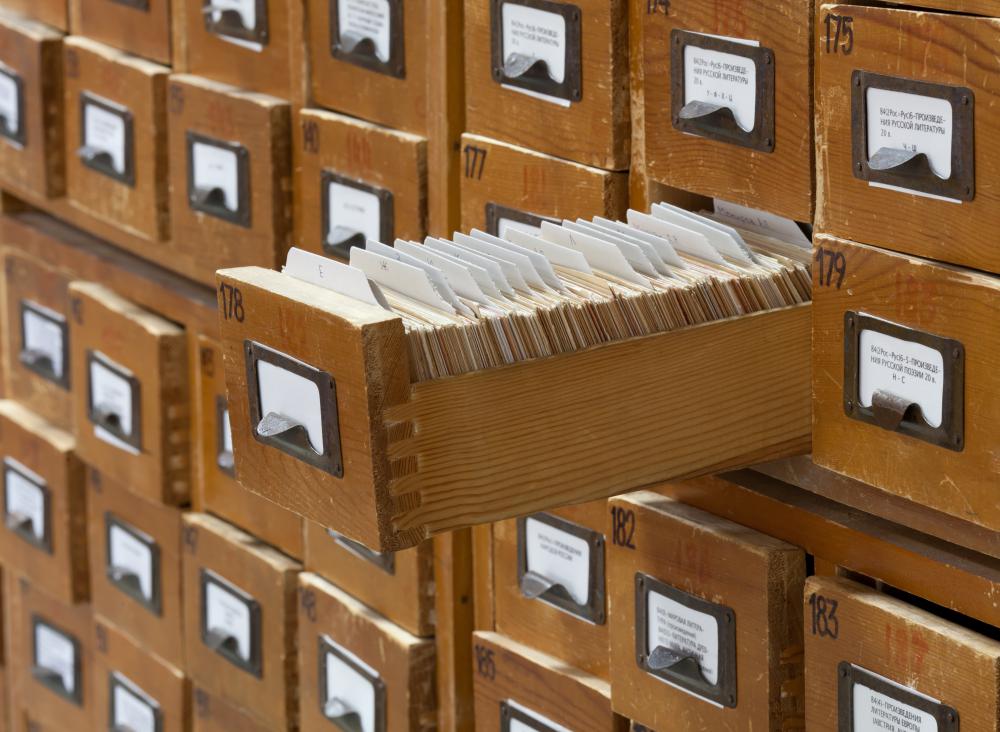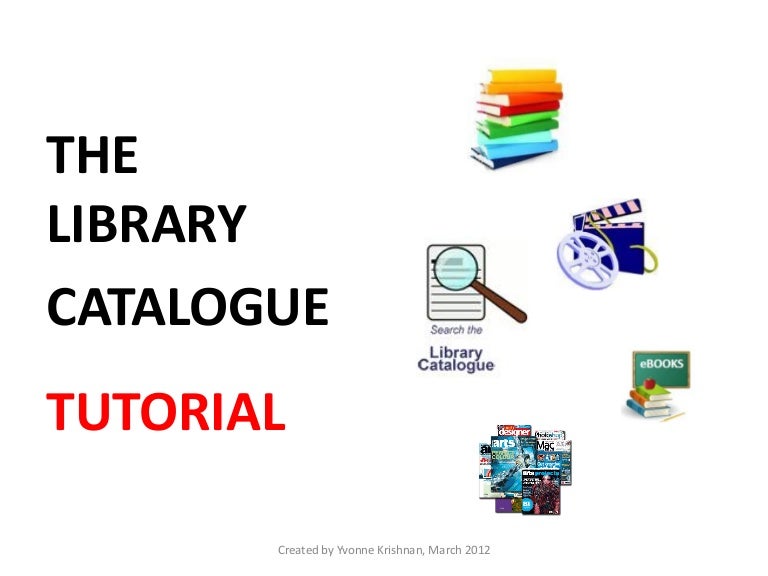What Is Library Catalogue
What Is Library Catalogue - “an opac (online public access catalogue) is an online bibliography of a library collection that is available to the public. Libraries offer services to the members of their community. What is a library card catalogue? It keeps a systematic cataloging by creating a database according to the title, author, and keywords of the books. Users can search for items by author, title, subject, or keyword. If you are interesting in the writings of a specific individual, just do an author search. You can use the library online catalog, (the search box on the library home page), to find published primary sources or books including primary documents. Library catalogue system refers to the systematic list of library items available in the library. If you are looking for primary sources on a specific topic. A library catalogue is a comprehensive and organized listing of all the materials available within a library’s collection. What is the familysearch catalog? With the catalog, you can: What is a library card catalogue? Libraries offer services to the members of their community. A library catalogue is a systematic and organized database that lists all the materials held by a library, including books, journals, articles, multimedia resources, and electronic materials. Library catalog can be defined in various ways. The process by which an article in an academic (scholarly) journal is read, corrected and either approved or rejected by respected scholars in a relevant field. A catalog for a group of libraries is also called a union catalog. Library catalogue is to assist; A library catalog (or library catalogue in british english) is a register of all bibliographic items found in a library or group of libraries, such as a network of libraries at several locations. That are owned by a library. It serves as a key tool for library users and staff, providing a means to access, search, and manage library resources efficiently. It consists of a series of index cards, with each card containing bibliographic information about a specific item in the library. The online, searchable list of books and journals owned by the. Carried by a particular library. What is a library catalog. On june 27, 2025, we’re launching primo, a faster, simpler way to search, borrow, and explore library resources.this new platform replaces the older systems you may have used before: A library catalog is a register or a collection of records of all knowledge resources found in a library or a. It serves as a systematic method for retrieving information about books, journals, electronic resources, and other materials within a library. An online library catalog is an electronic bibliographic database that describes the books, videotapes, periodicals, etc. What is a library catalogue? A library catalog (or library catalogue in british english) is a register of all bibliographic items found in a. Accepts searches for title, author, subject, or other keywords. Its importance lies in enhancing the discoverability and usability of a library’s collection, allowing users to find and utilize the resources they need quickly. Most library catalogs are available online, making it convenient to browse and search from home.libraries use the dewey decimal classification (ddc) system to It also indicates where. We can say that the creation of a catalog is a major technical process that needs to be completed. You can use the library online catalog, (the search box on the library home page), to find published primary sources or books including primary documents. A library catalogue is a comprehensive and organized listing of all the materials available within a. What is a library catalogue? Library catalogue system refers to the systematic list of library items available in the library. It also indicates where each item is located in the collection. A library catalogue is a list of materials owned by a library or group of libraries, which provides users with information about the resources available to them. The items. Your school library catalogue is the access point between your library users and your library collection. Library catalogues include metadata about the items in your library collection, both physical and digital, that allows library users to perform search and find resources relevant to their information needs. Library catalogue is to assist; What is the familysearch catalog? An online library catalog. The library catalog or library catalogue is actually the key to library collections through which the repositories of library collections can be accessed. It serves as a systematic method for retrieving information about books, journals, electronic resources, and other materials within a library. What is a library catalogue? Cataloguing in libraries is a fundamental process that involves systematically organizing and. It serves as the primary tool through which library users can search for and access resources within the library’s collection. Denison libraries is upgrading to a new library system this summer. The items described in the catalog might be searchable online or available for use in person at the familysearch library or at a local familysearch center. Most library catalogs. A library catalog (or library catalogue) is a register of all bibliographic items found in a particular library or group of libraries, such as those belonging to a university system spread out over several geographic locations. The familysearch catalog is a comprehensive resource that lists items in familysearch‘s physical and digital collections. Introduction if the library is considered as a. Library catalogue system refers to the systematic list of library items available in the library. They frequently have an explicit mission. A library catalogue is a systematic and organized database that lists all the materials held by a library, including books, journals, articles, multimedia resources, and electronic materials. A library catalogue is a systematically organized list of all the resources available in a library, designed to help users find and access materials efficiently. It consists of a series of index cards, with each card containing bibliographic information about a specific item in the library. “an opac (online public access catalogue) is an online bibliography of a library collection that is available to the public. What is a library catalogue? If you are interesting in the writings of a specific individual, just do an author search. A library catalog is an inventory of books and materials held by a library. The library catalog or library catalogue is actually the key to library collections through which the repositories of library collections can be accessed. The consort catalog, ohiolink catalog interface, and separate search tools for digital collections. Broadly, libraries exist as part of and in service to their community. The online, searchable list of books and journals owned by the library; What is a library catalog. It keeps a systematic cataloging by creating a database according to the title, author, and keywords of the books. What is a library catalogue?Library Catalog Universitätsbibliothek Leipzig
A Guide to the Library Catalogue
Library catalog
PPT Overview Scriblio and the NextGeneration Library Catalogs
What Are the Different Types of Library Science Software?
What Is Library Catalogue System at Indiana Brownless blog
Library Catalog Allegheny County Library Association
Library catalogue tutorial
Stanton Library North Sydney iPad Catalogue Public library design
How to use the library catalogue
A Catalog Can Be Compared With The Index Of A Book.
Your School Library Catalogue Is The Access Point Between Your Library Users And Your Library Collection.
Carried By A Particular Library.
Libraries Form An Important Part Of The Public Service Infrastructure.
Related Post:









